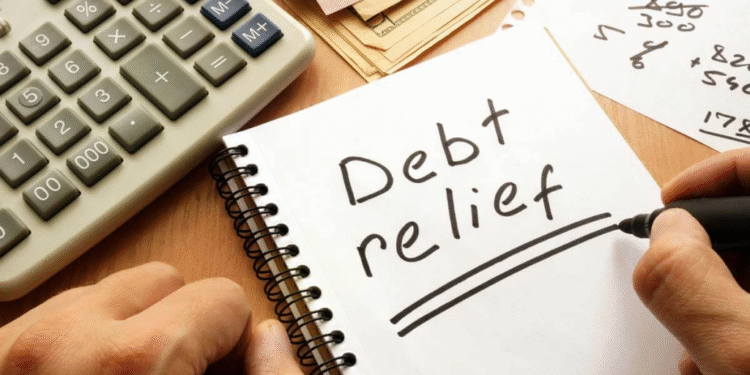Debt can feel like an unrelenting weight on your shoulders. Many people find themselves juggling multiple bills, sky-high interest rates, and sleepless nights worrying about how to make ends meet. But what if there was a way to hit reset? Debt relief programs may be the financial lifeline you’ve been searching for. Rather than being yet another guide, this blog unpacks the concept from different angles, exploring how these programs work, their benefits, and potential downsides. Stick around to find out if debt relief programs might be the key to reclaiming control over your finances.
What Are Debt Relief Programs Really About?
Debt relief programs are designed to help individuals and families grappling with unmanageable debt. They offer structured solutions to reduce, renegotiate, or eliminate debt, providing a path to financial stability.
But here’s the thing—not all debt relief programs are created equal. They come in various forms, including debt management plans, debt consolidation loans, settlement programs, and even bankruptcy options. Understanding these different types is the first step toward finding a solution tailored to your unique situation.
For instance:
- A debt management plan helps you pay off unsecured debts like credit cards with the assistance of a credit counseling agency. It involves creating a feasible repayment plan that may include reducing interest rates.
- A debt settlement program involves negotiating with creditors to pay a lump sum that is less than the amount owed.
- A debt consolidation loan combines multiple debts into one single loan with a potentially lower interest rate.
- Bankruptcy, while a last resort, can offer a legal reset for severe financial distress.
Each program has its nuances, with varying impacts on your finances and credit score. Choosing wisely is essential.
The Unexpected Ripple Effects of Debt Relief Programs
Debt relief does more than just alleviate financial pressure. It can have a ripple effect that improves other areas of your life.
1. Strengthening Mental Health
Debt is one of the biggest contributors to stress, anxiety, and even depression. A 2022 survey by The Financial Health Network found that households in financial distress reported significantly higher levels of mental health challenges. Debt relief programs can provide a light at the end of the tunnel, delivering an emotional boost and much-needed peace of mind.
“Finally signing up for a debt relief program gave me back my nights of restful sleep,” shares Maria, a former debtor turned advocate for financial literacy.
2. Improved Relationships
Financial woes often strain personal relationships. By tackling debt head-on and reducing financial chaos, families and couples can find relief and begin to rebuild stronger connections.
3. Greater Financial Literacy
Many debt relief programs, particularly those facilitated by nonprofits, come bundled with financial education. They teach you budgeting skills, how to avoid future debts, and better money management strategies to prevent falling into the same traps.
Behind the Curtain: The Pros and Cons You Need to Know
While debt relief programs can be transformative, they’re not without drawbacks. Understanding the full picture prepares you to make the best financial decision.
Benefits of Debt Relief Programs
- Simplified Payments
Programs like debt consolidation turn multiple payments into one, making repayments easier to manage.
- Reduced Stress
Knowing you have a clear plan to eliminate your debt eases the mental burden significantly.
- Lower Balances or Interest Rates
Debt settlement programs often reduce the principal amount owed, while debt management plans negotiate lower interest rates, saving you money in the long run.
- Avoiding Legal Action
Taking proactive measures to tackle debt shields you from invasive collection efforts or lawsuits from creditors.
Potential Drawbacks
- Impact on Credit Score
Certain programs, like debt settlement or bankruptcy, may negatively affect your credit in the short term.
- Fees and Costs
Some for-profit debt relief agencies come with high service fees, eating into your savings.
- No Guarantees
Debt settlement programs depend on creditor cooperation, and there’s no guarantee they’ll accept the terms offered.
- Risk of Scams
Unfortunately, predatory companies posing as legitimate debt relief services prey on vulnerable individuals. Always ensure the program is backed by reputable credentials, such as National Foundation for Credit Counseling (NFCC) certification.
Is a Debt Relief Program Right for You?
Debt relief programs aren’t for everyone. They’re most effective for individuals who:
- Have unsecured debt, such as credit cards or medical bills, rather than mortgages or car loans.
- Can make some repayment, but needs the structure or reduced obligations to stay on track.
- They are open to financial education and behavioral changes to make the most of this opportunity.
However, if you’re dealing with relatively small debt that you can manage with strategic budgeting, enrolling in a full-fledged relief program may not be necessary. It’s all about assessing your situation realistically and consulting professionals where needed.
Debt Relief Success Stories to Inspire You
Sometimes, hearing from someone who’s successfully navigated debt relief can reassure you that you’re not alone. Here’s a snapshot:
- The Washington Student Default Crisis
Tom worked with a debt settlement company to reduce his student loan default payments from $15,000 down to $9,000. Though the process was long, the structured approach eventually gave him the financial freedom to start building wealth again.
- Jennifer and Her Snowball Effect
Jennifer opted for a debt management plan. With reduced interest rates and expert guidance, she eliminated $25,000 worth of credit card debt in just four years. Today, she’s a volunteer financial coach empowering others to follow her example.
What Questions Should You Ask Before Signing Up?
Not all debt relief programs are equally beneficial. Ask these critical questions before committing:
- What are the total costs of the program, including hidden fees?
- Will my creditors continue collection efforts during the process?
- How will the program affect my credit?
- Is the organization accredited and legitimate?
- Do they offer financial education as part of their services?
Knowing the answers to these questions ensures you’re making an informed choice.
Reclaim Your Financial Freedom
Living with debt can feel like carrying a weight that never lifts—but it doesn’t have to be that way. Debt Relief Programs provide structured, supportive solutions to help you regain control, reduce your burden, and rebuild your financial future with confidence.
Whether you’re considering consolidation, settlement, or management, these programs are tailored to fit different financial situations, turning chaos into clarity and stress into strategy.
Debt Relief Programs empower you to take control, make informed decisions, and move forward without the constant pressure of unmanageable debt. Start today, get expert guidance, and take your first step toward lasting financial freedom.













